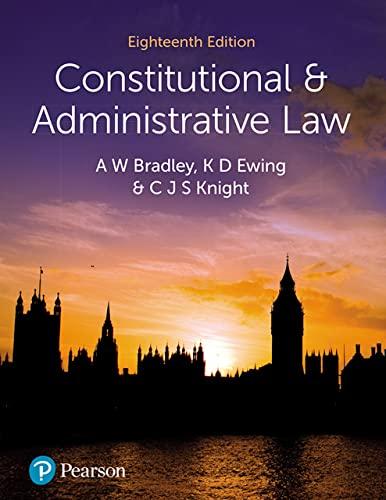Question
The historic Fair Work Legislation Amendment (Secure Jobs, Better Pay) Act 2022 (Cth) (Secure Jobs Act) passed Parliament on 2 December 2022. It introduced the
The historic Fair Work Legislation Amendment (Secure Jobs, Better Pay) Act 2022 (Cth) (Secure Jobs Act) passed Parliament on 2 December 2022. It introduced the most significant and wide-ranging changes to Australia's workplace relations framework since the introduction of the Fair Work Act 2009 (Cth) (Fair Work Act).
While it provided far reaching amendments to the Fair Work Act and associated legislation, the most topical and controversial aspects related to the enterprise bargaining process, especially with regard to the expansion of access to multi-enterprise agreements and multi-employer bargaining, and the enhanced powers given to the Fair Work Commission.
At the time, the Minister for Employment and Workplace Relations, Tony Burke, made it clear that the changes enacted to the enterprise bargaining process were intended to revitalise the nation's enterprise bargaining system, and in turn 'get wages moving'.
Unions were supportive of the changes, whilst employers, employer associations and industry groups were concerned that the changes would lead to increased bargaining disputation and make productivity gains more difficult to achieve.
Whilst the changes to the Fair Work Act's enterprise bargaining provisions resulting from the Secure Jobs, Better Pay Act were substantial, the Fair Work Act, including its bargaining provisions, has been subject to yet more change - or will be - due to the enactment of subsequent amending legislation:
the Fair Work Legislation Amendment (Protecting Worker Entitlements) Act 2023
The Fair Work Legislation Amendment (Closing Loopholes) Act 2023
The Fair Work Legislation Amendment (Closing Loopholes No. 2) Bill 2023 (passed both houses of parliament on 12 February 2024 and awaiting royal assent at time of writing)
In the context of the background information presented above, students are to research and write an analytical essay which uses relevant employment relations (ER)/industrial relations (IR) theory, empirical research evidence and other authoritative sources (policy statements, campaign publications, submissions to government inquiries and industrial tribunals, annual reports, informed media and academic commentary) to present a critical analysis of the following questions:
What reforms to the Fair Work Act's enterprise bargaining provisions have been introduced by the Albanese-led Federal ALP Government, with the enactment of the Secure Jobs, Better Pay Act 2022 and subsequent amending legislation? What was the Government's rationale for the enactment of these changes?*
What are the main arguments put forward, both for and against the enterprise bargaining reforms, by employer associations and employers, and trade unions on behalf of workers?
Based on your understanding of the enterprise bargaining reforms, and with reference to both the arguments of the key industrial relations actors in Australia discussed above (including the rationale of the federal government) and the reported outcomes of the amended
Step by Step Solution
There are 3 Steps involved in it
Step: 1

Get Instant Access to Expert-Tailored Solutions
See step-by-step solutions with expert insights and AI powered tools for academic success
Step: 2

Step: 3

Ace Your Homework with AI
Get the answers you need in no time with our AI-driven, step-by-step assistance
Get Started


